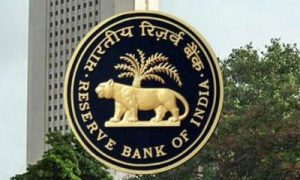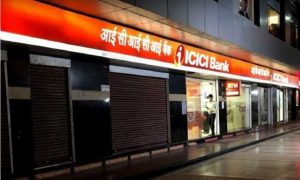The finance ministry on Tuesday argued against a waiver of interest on interest or any ‘static relief’ under the six-month moratorium on term loans that ended on August 31, saying such one-size-fits-all solutions could militate against financial stability.
In a fresh affidavit submitted to the Supreme Court, the ministry, however, said the debt restructuring plan notified by RBI early last month involved the option of two-year moratorium, as also customised reliefs to individual borrowers, including “alteration in the rate of interest and haircut (by lenders) on amount payable as interest”
“A waiver of the interest on interest during moratorium would also be against the basic canons of finance… Any moratorium is transient by its very nature and has to end one day.
Continued on Page 2Thus, the best interest of the economic health of the country, as well as that of the respective borrowers would be best served by paving the way for a more durable long-term solution of debt restructuring,” the ministry said.
Last week, the apex court took strong exception to the Central government’s refusal to take an independent stand on the issue of interest waiver under the six-month moratorium and gave it one more opportunity to clarify its view. Stating that the Centre “cannot hide” behind RBI, the court had asked the government to furnish a separate affidavit by Tuesday.
In its affidavit, the ministry stated that ex post facto change in the terms and conditions of the offer of moratorium favouring those who availed of it over those who made the extra effort of repaying as per schedule would be “grossly inequitable and patently unfair” for those who did not avail of the benefits of moratorium initially or gave it up subsequently.
Calling the moratorium on term loans announced to provide relief to borrowers in the context of Covid-19 a ‘temporary standstill arrangement’, the ministry said, “the best interest of the economic health of the country, as well as that of the respective borrowers would be best served by paving the way for a more durable long-term solution of debt restructuring”. Thus, a borrower, who is fearful of being in default as on September 1 and becoming an NPA soon thereafter, could continue to avail moratorium as a part of the resolution plan implemented in terms of the (August 6 RBI) circular,” the Centre stated in the affidavit.
Solicitor General Tushar Mehta, appearing for both the Centre and RBI, told a bench led by Justice Ashok Bhushan that several steps have been taken for stressed sectors and the economy has contracted by 23.6% due to the Covid-19 pandemic. “We are in the process of identifying the distressed sectors to vary benefits as per the (Covid-19) impact of hit they have taken,” he argued.
Mehta suggested that a meeting of representatives of the Central government with RBI and other banks will be held soon to come up with a proper solution.
However, the bench said “we are hearing this from the past three dates of hearing. Since day one, we have been asking you to come up with a mechanism. The country is going through a problem, we will hear the issues tomorrow (Wednesday).”
The apex court is hearing a petition seeking a moratorium on all loan instalments for the period between March 1 and August 31 as well as a waiver of interest on the unpaid instalments.
The finance ministry pointed out that problems of borrowers cannot be dealt with treating them as a homogeneous class. There are corporate loans, MSME accounts and personal loans. As far as lenders are concerned, they are also of many kinds, including scheduled commercial banks, RRBs, cooperative banks etc. The structuring of loans are different among various categories of lenders, including rate of interest and duration of loans. The individual loans also vary, including housing, education and vehicle loans, it noted, stressing that solutions to the problems of each category can’t be the same.
Earlier, RBI had informed the SC that any ‘forced’ interest waiver on loan moratorium will risk their financial viability and hurt banks by as much as Rs 2 lakh crore (1% of GDP). Concurring with this view, the ministry said banks continued to incur costs on bank deposits and borrowings, and added that deposit accounts themselves are over 197 crore.
While the court wanted the Centre to invoke its powers under the Disaster Management Act to deal with the plight of borrowers, the government stated that “the National Disaster Management Authority did not step in as, by its very nature, it may not have expertise in dealing with the complex policy decisions effecting the financial stability of the nation in general and that of banking sector in particular”.

































